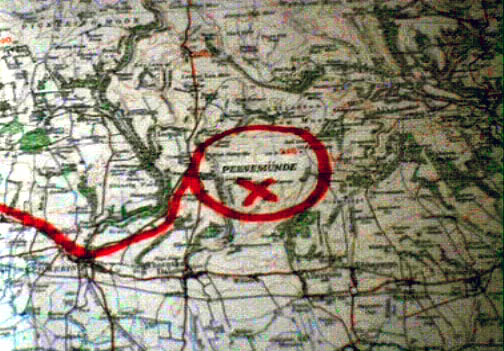|
Shining Through was the Pearl Harbor or Alexander of its day, a mega-budget, star-studded extravaganza which underperformed at the box office. I suppose this flick must have lost a bundle of greenbacks, but it really kicked ass at the Razzies! What else can you say about a film in which Melanie Griffith single-handedly defeats Nazi Germany? Some scenes in this film are absolutely bewildering. Here is an example: Melanie is an American who has been snuck behind enemy lines because she can speak German with a lower-class Berliner accent. Her contact in Berlin trains her to be the cook in the household of an important Nazi, and sets her up to oversee an important dinner. Melanie bungles the dinner completely. She serves the cucumber soup hot and the doves completely raw. Now guess what happens as a result of this dinner? You will never imagine.
Say what???? None of that made even the tiniest bit of sense. I have read many comments by reviewers and IMDb members who carped about the historical inaccuracy of this film. I'm sure they all had good points, although many of the comments involved nitpicking about hair styles and military insignia, and all that was over my head. I assume they were correct, based on the following things I could see for my own eyes:
|
|
 |
|
|
The acknowledged inaccuracy of this film, however, is not what made it fail. It might still have been a blockbuster without historical accuracy, as The English Patient proved. The real deal-breaker was the film's own internal inconsistency - the plot is implausible and illogical, and people's actions never produce the consequences that they would produce in human society or in any part of the physical universe. I cited one example. Here's another: In the film's final scene, Michael Douglas has to get a wounded Melanie over the border from Germany to Switzerland. He is carrying her. The Germans are shooting at them from behind. They are at a train station, and the official border is simply marked by a white stripe painted on the concrete, just as if it were the goal line at Notre Dame. Michael is hit twice, falls both times, gets up, carries her again. With a final last-ditch effort, he stretches forward and "breaks the plane" of the border with Mel's body. At this point, the neutral Swiss referee signals a touchdown, the Germans walk away dejectedly, and Michael's friends do some end zone celebrations on the Swiss side. They win! The war movie becomes a sports movie! Oh, sure, the Germans would certainly have given up on important escaping spies who were carrying critical microfilm - as long as they barely crossed a white line representing the Swiss border! Those Nazis were famous throughout the world for their respectful treatment of international borders. Let's assume for a moment that the situation had taken place in our universe instead of in a football movie, and that the Germans had not given up, and had captured the spies, thus violating four inches of Swiss sovereignty. What powerful Swiss reprisals would they have faced for creating such an international incident? Perhaps Switzerland would have declared war on them? Raised the tariffs on cuckoo clocks? Mixed in some Ex-Lax with the chocolates exported to Germany? I could keep writing these examples for hours, but I'll restrict myself to one more example: At first, Melanie Griffith was held in contempt by the top agent inside Germany because of her fishmonger's accent, yet one day later, that same aristocratic man's aristocratic daughter introduced Mel to her even more aristocratic mom, and successfully passed Mel off as a Baroness whom she befriended in her student days at Pompous German University for the Terminally Stiff and Stuffy! Needless to say, Mel did not sound like a Baroness or even like a lower-class Berliner. To her credit, she did speak perfectly passable and understandable Hochdeutsch with a charming American accent, but it could not have passed for any kind of native speech, let alone a guttural urban dialect. Her drawled "r's" were distinctively American. Man, alive! No wonder those Germans lost the war. It's a marvel that they managed to lace up their jackboots without assistance. I've led you to believe that the script is incomprehensibly dense, and I've understated my case. To be more accurate, the script is howlingly stupid. The portion of this film which takes place in Germany degenerates into a logic-straining cheesefest, albeit with great production values. Think Pearl Harbor. In spite of that, I kind of enjoyed Shining Through. I have to admit it has some good moments - even some great ones.
To tell you the truth, after watching the first thirty minutes of this film and seeing some obvious positives, I was settling in for an enjoyable film experience. Unfortunately, the logic behind promoting Melanie from secretary to spy was absolutely crazed ("Ed, taste my strudel", was her persuasive demonstration of complete mastery of the German culture), and the portion behind enemy lines just doesn't make any sense at all. |
|
